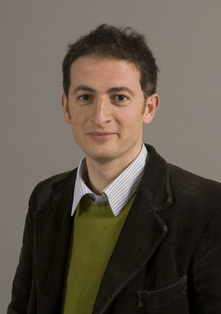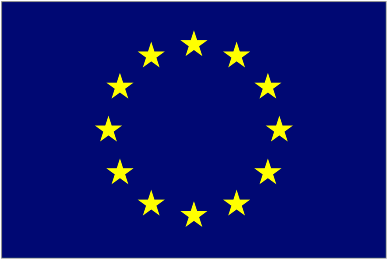Using Science to Set Regulatory Criteria: Identifying Endocrine Disrupting Chemicals in the European Union
1:00 pm US Eastern Time
Slides & Resources
Speaker Slides
Using Science to Set Regulatory Criteria
Background Materials
- Scientific Issues Relevant to Setting Regulatory Criteria to Identify Endocrine Disrupting Substances in the European Union. Slama et al. 2016. EHP
- Endocrine Disruptors Roadmap. European Commission
- Science-based regulation of endocrine disrupting chemicals in Europe: which approach? Bourguignon et al. 2016. Lancet Diabetes Endocrinol.
- European Commission's set of decisions on how to identify endocrine disrupting chemicals. European Commission
This call is hosted by the
The European Union has taken on the regulation of EDCs through various EU regulatory instruments and agencies since 1999 in response to growing concerns about health and environmental problems associated with human exposures to endocrine disrupting chemicals. Key among these are two EU laws which govern pesticides and biocides and which state that pesticides and biocides containing chemical substances recognized as endocrine disruptors will not be allowed on the market. However, implementation of these laws require a set of criteria for identifying chemicals with endocrine disrupting properties. The European Commission was mandated by the EU Parliament and EU Council to develop these criteria by December 2013, without which the 2009 pesticide and 2012 biocide laws’ provisions pertaining to endocrine disruptors cannot be implemented.
This month the European Commission announced a set of decisions on how to identify endocrine disrupting chemicals for regulatory purposes. These decisions have direct implications for how pesticides and biocides will be regulated in the European Union. They also set a precedent for the world, as no other country has adopted legally-binding criteria to determine what is an endocrine disruptor.
A team of 7 independent researchers from research institutions and universities in the EU and the United States have published a commentary that contributes to the science public policy dialogue. On this call, Dr. Remy Slama, an author of this commentary, discussed new research and recommendations on the criteria to identify endocrine disruptors for European legislation. After addressing the consensus on the WHO definition, he discussed the 4 options outlined in the Endocrine Disrupting Chemical Roadmap for the EU. He gave special attention to the role of impact assessments for determination of scientific criteria and the implications these recommendations have for policy.
Featured Speaker
 Rémy Slama, PhD, is an environmental epidemiologist, Senior Investigator at Inserm (the French National Institute of Health and Medical Research), and leader of the Inserm-Grenoble University joint research team in Environmental Epidemiology applied to Reproduction and Respiratory Health. His research aims at characterizing the influence of environmental contaminants on human reproduction and childhood health with a specific focus on the influence of early life (intra-uterine) environmental exposures on the health of the fetus and the child (Developmental Origins of Health and Diseases hypothesis). Dr. Slama is President of the scientific council of the French research program on endocrine disruptors (PNRPE); he belongs to several expert groups and scientific councils related to environmental health, such as the scientific council of InVS (the French CDC), and acted as an elected Councilor of the International Society of Environmental Epidemiology (ISEE) where he is still in charge of relations with WHO and a member of the council of the European chapter. Dr. Slama received his PhD in Environmental Epidemiology from University Paris-Sud.
Rémy Slama, PhD, is an environmental epidemiologist, Senior Investigator at Inserm (the French National Institute of Health and Medical Research), and leader of the Inserm-Grenoble University joint research team in Environmental Epidemiology applied to Reproduction and Respiratory Health. His research aims at characterizing the influence of environmental contaminants on human reproduction and childhood health with a specific focus on the influence of early life (intra-uterine) environmental exposures on the health of the fetus and the child (Developmental Origins of Health and Diseases hypothesis). Dr. Slama is President of the scientific council of the French research program on endocrine disruptors (PNRPE); he belongs to several expert groups and scientific councils related to environmental health, such as the scientific council of InVS (the French CDC), and acted as an elected Councilor of the International Society of Environmental Epidemiology (ISEE) where he is still in charge of relations with WHO and a member of the council of the European chapter. Dr. Slama received his PhD in Environmental Epidemiology from University Paris-Sud.
This teleconference call is one in a monthly series sponsored by the Collaborative on Health and the Environment’s TEDX), Sharyle Patton (Commonweal), and Genon Jensen (HEAL).
The call was moderated by Dr. Lisette van Vliet, the Senior Policy Officer for HEAL. The call lasted 45 minutes was recorded.



